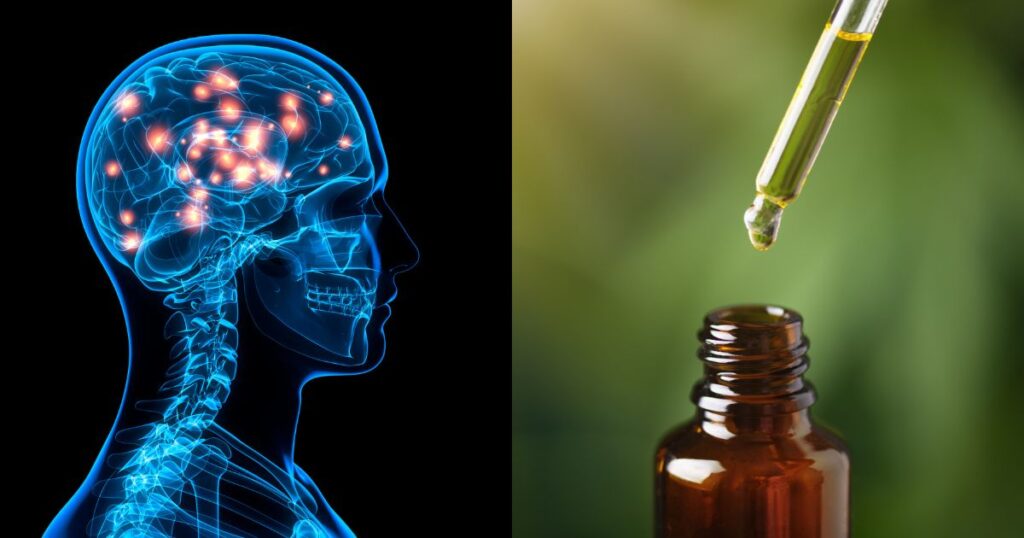Scientists have discovered something remarkable about cannabidiol, better known as CBD. A recent Canadian government-funded study shows this non-intoxicating cannabis compound may help protect our brains from age-related memory decline and reduce harmful inflammation that contributes to cognitive problems.
The research, conducted by scientists at the University of Lethbridge and McGill University and published in Frontiers in Aging Neuroscience, offers encouraging news for anyone concerned about maintaining sharp thinking as they get older. The study was funded by the Canadian Institutes of Health Research, lending additional credibility to its findings.
What the Scientists Discovered
The researchers studied mice for seven months. Half the mice received daily CBD treatments, while the other half got a placebo. The results were striking.
Mice that received CBD performed significantly better on memory tests. They showed improvements in two key areas that typically decline with age. First, their visual memory got better, meaning they could remember and recognize objects they had seen before. Second, their spatial memory improved, which is the ability to remember locations and navigate through spaces.
But perhaps most importantly, when scientists examined the mice’s brains afterward, they found something significant. The CBD-treated mice had less inflammation in crucial brain regions, particularly the hippocampus and medial prefrontal cortex. The hippocampus plays a vital role in forming new memories and learning, while the prefrontal cortex helps with decision-making and complex thinking.
Why Brain Inflammation Matters
As we age, our brains naturally develop more inflammation. This isn’t the same kind of inflammation you might experience with a cut or injury. Instead, it’s a chronic, low-level inflammatory response that can damage brain cells over time.
This brain inflammation involves the overactivation of special immune cells called microglia and astrocytes. Think of these cells as the brain’s security system. When they work properly, they protect brain tissue and clear out cellular debris. But when they become overactive due to aging, injury, or disease, they can actually harm the very neurons they’re supposed to protect.
Research has linked this type of brain inflammation to various forms of dementia and cognitive decline. The fact that CBD appears to reduce this inflammation suggests it might help preserve brain function as we age.
How CBD Works in the Brain
CBD doesn’t work like traditional medications. Instead, it interacts with our body’s endocannabinoid system, a complex network of receptors and chemical messengers that help regulate various bodily functions, including memory, mood, and inflammation.
The researchers believe CBD achieves its brain-protective effects through several mechanisms. One important way is by blocking a protein called equilibrative nucleoside transporter 1, or ENT1. This protein is responsible for removing adenosine from the spaces between brain cells.
Adenosine is a natural compound that has anti-inflammatory and neuroprotective properties. By blocking ENT1, CBD allows more adenosine to remain available, potentially reducing inflammation and protecting brain cells.
Additionally, CBD appears to promote the growth of new brain cells, particularly in the hippocampus. This process, called neurogenesis, typically slows down as we age. By supporting the formation of new neurons, CBD might help maintain cognitive function over time.
What This Means for Humans
While this study used mice, the findings are encouraging for several reasons. Mice and humans share many similarities in how their brains age and develop inflammation. The brain regions that showed improvement in the study – the hippocampus and prefrontal cortex – are the same areas that typically decline in human aging and dementia.
The seven-month treatment period in mice corresponds to a substantial portion of human life, suggesting that CBD’s benefits might develop over months or years of consistent use rather than immediately. This timeline makes sense given that CBD appears to work by reducing chronic inflammation rather than providing a quick fix.
Currently, there are no approved medications that can prevent age-related cognitive decline. Most treatments for conditions like Alzheimer’s disease focus on managing symptoms rather than addressing underlying causes. CBD’s ability to target brain inflammation represents a potentially different approach to preserving cognitive health.
The Cannabis Connection
This research adds to growing evidence that cannabis compounds have legitimate medical applications. CBD and THC are the two main compounds in cannabis that researchers study for medical purposes. While THC is responsible for marijuana’s psychoactive effects, CBD doesn’t produce a “high” and has shown promise for various health conditions.
Interestingly, the researchers noted that CBD might work even better when combined with other cannabis compounds, including THC terpenes. This suggests that whole-plant cannabis extracts might be more effective than isolated CBD alone, supporting what many in the cannabis community call the “entourage effect.”
The study joins a growing body of research challenging outdated assumptions about cannabis and cognitive function. Other recent studies have found that cannabis users sometimes perform better on cognitive tests than non-users, and that medical marijuana use doesn’t significantly impair thinking in patients with chronic conditions.
Looking Forward
While these results are promising, it’s important to remember that this research is still in early stages. The study used only 19 mice, and more research is needed to confirm these findings in humans. Additionally, the study primarily used male mice, so we don’t yet know if CBD affects male and female brains differently during aging.
The researchers also didn’t determine the optimal dosage of CBD or identify which people might benefit most from treatment. Future studies will need to address these questions and examine CBD’s long-term safety in older adults.
Despite these limitations, the research represents an important step forward in understanding how cannabis compounds might help maintain brain health as we age. As our population grows older and concerns about dementia increase, any potential tool for preserving cognitive function deserves serious scientific attention.
As research continues, we may discover that cannabis compounds like CBD have an important role to play in healthy aging. For now, this study provides hope that nature may have already provided us with some of the tools we need to age more gracefully, both mentally and physically.
















